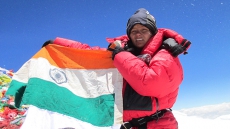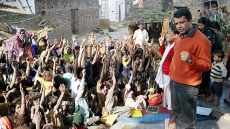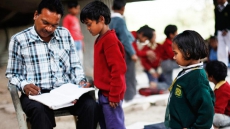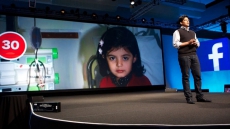Anish Patel’s Uplift Humanity India is a non-profit organization dedicated to rehabilitation of juvenile inmates and orphans in South Asia. Established in 2011, it works to empower youth with education, mentorship and rehabilitation.
In December 2015, India was raging over a crucial debate in the backdrop of the Supreme Court of India mulling a petition to reduce juvenile age from 18 to 16. The debate propelled by the gruesome gang rape dubbed the Nirbhaya rape triggered activists from around the country to voice issues centered on juvenile convicts in India such as their rights, rehabilitation funding, infrastructure and cramped centres. In her detailed article titled Life in India’s Juvenile Homes published in The New York Times, Pamposh Raina mentions the deteriorating state of juvenile centre facilities in India. The article quotes “Lack of trained staff and financial corruption” plaguing existing institutions amongst other infrastructural constraints and to further this claim, child rights activist and lawyer, Anant Kumar Asthana tells Raina, “Officers are overworked and untrained and often resort to shortcuts to run these places (juvenile centres).
Although, the issue gained momentum in international media only recently, it had already reserved the attention of Anish Patel to charge his focus and resources towards it. Uplift Humanity India (UHI) is a non-profit organization dedicated to rehabilitation of juvenile inmates and orphans in South Asia. Established in 2011, it works to empower youth with education, mentorship and rehabilitation. Since their inception, UHI has established four juvenile rehabilitation centres throughout India and has sent 250 volunteers from the Unites States who have contributed approximately 150,000 hours of volunteer work. “Through Uplift, I’ve learned to look at problems like poverty or juvenile recidivism through a macro lens. It’s not about working harder – it’s about working smarter,” says Patel who was in high school when he established UHI.

UHI’s rapid success and demand to fill in more detention centres speaks volumes for the existing vacuum between infrastructural demand and bureaucratic supply. For a corruption-stricken economy, it is a cliché to say central government funds have not been reaching the intended facilities; these are innate challenges that individuals and institutions learn to live and cope with. Explaining his own experience struggling for cooperation with the system the 22-year-old says, “From the beginning, it was a struggle. From working with myopic Indian government officials to establishing authority within juvenile centers, it was always an uphill battle.”
And yet, Patel, together with his team of volunteers, has educated more than 500 juveniles and orphans and donated approximately $5,000 CAD in scholarships. “It’s hard for us to get corporate donors when we don’t have renowned people sitting on our board. But we’re fighting these traditional norms, and showing others that sometimes the conventional methods can be broken through innovation.”
The organization is driven by volunteers from the United States who fly down to India every year and work on a specialized curriculum featuring lessons in ethical decision making, anger management, technology, basic hygiene, relationship building, goal setting, confidence building, and career counseling. To support this summer program curriculum, the organization has pledged to fund three higher education scholarships totaling to an annual approximate of $1,500 CAD.
What drives this youth-driven and youth-targeted organization? This recent graduate from New York University’s Stern School of Business explains, “A few years ago, I remember a kid named Sunil who came back to us after he graduated from our program. He told us that after he left us, he started his own chai (tea) stand. He explained to us that he’s making much less than what he would
have been making if he were to be stealing, but that this job feels more satisfying to him. Even though he was making less, Sunil learned from the lessons on moral and ethical decision making that our team taught him. It is stories like those of Sunil’s that drives us to work so hard to make an impact every day.”

The first day was no less of a challenge either. Patel says no one, the authorities and juveniles, was ready to listen and yet each day, the team would arrive to deliver their sessions and workshops. By the last day, the program seemed to have reciprocated the desired impact. Today, the team has evolved on various measures – volunteers are trained prior to their arrival at the centres in New Delhi, Mumbai, Hyderabad, Vadodara, Nadiad, and Indore, scholarship is not a cash-incentive but a skill training or educational course. To evaluate the progress made by each student, the team conducts a pre and post examination.
“Starting Uplift Humanity was one of my scariest achievements,” Patel says and adds, “While we’ve made a small dent, we have so much left to do.” The organization is looking into expansion in other Indian cities and providing their services throughout the entire year in vocational training, computer classes, and career planning.
Before parting, I ask him his advice to youth and social developmental sector enthusiasts – “One of the greatest things about starting a non-profit is that you’ll be able to attract a talented team of passionate like-minded individuals. Once you culminated that team, things will slowly fall into place. You’ll face hurdles on the way – but as you solve each problem, you’ll want to excel and do more. Don’t give up just because of the challenges.”




